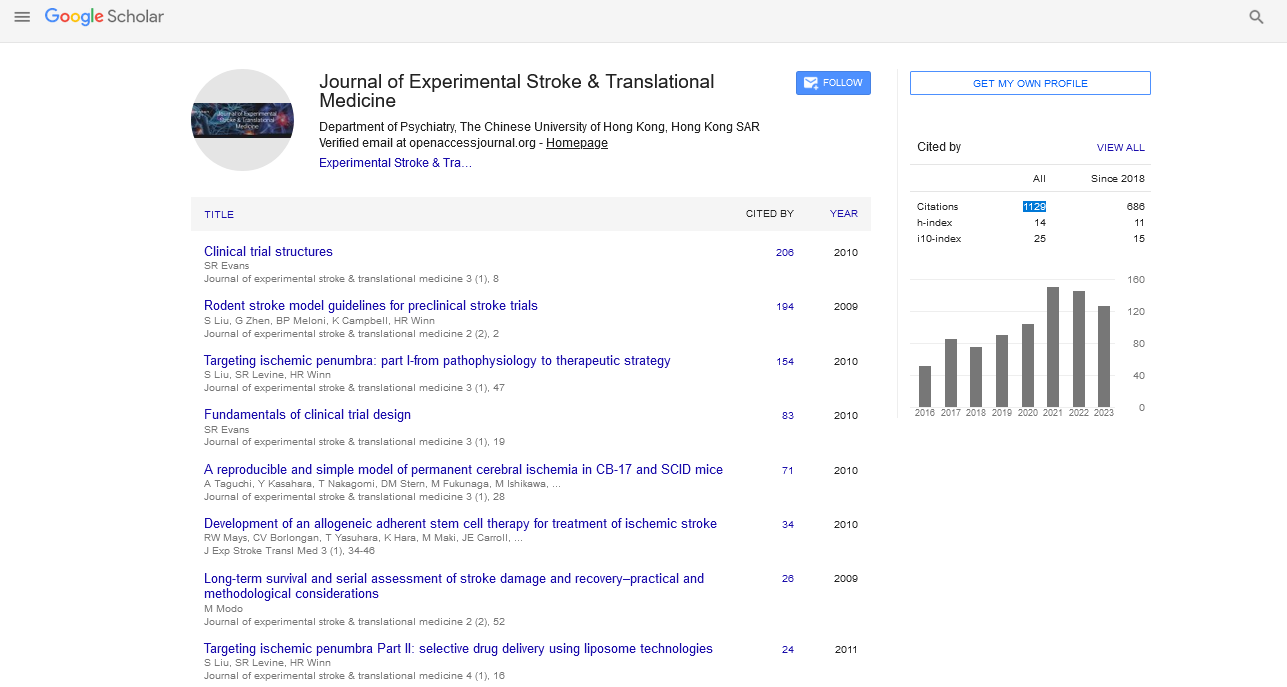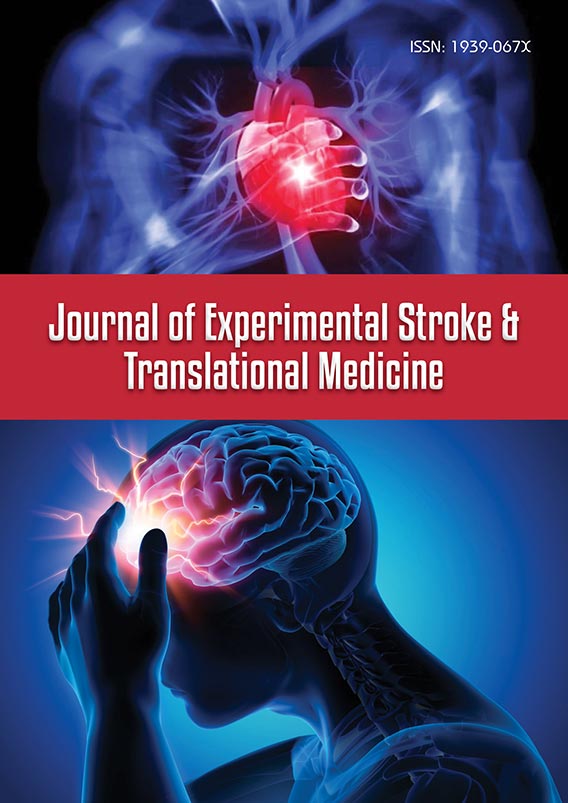Abstract - Journal of Experimental Stroke & Translational Medicine (2020)
Precision medicine in cardiovascular diseases
Himani Kulshreshtha
Indian Institute of health management and Research, India.
Abstract
Precision medicine is also known as personalized medicine. It is the emergence approach in the medical industry where it is playing its effective role in diagnostics and as well as in treatment. This treatment can be preventive and curative. Precision medicine provides a wide area of research and further creating a scope of treatment for cardiovascular disease as well.
Cardiovascular diseases are broadly classified as diseases related to heart and major arteries like Aorta and others. The most common cardiovascular disease is hypertension which is majorly a lifestyle disease. But when it is related to precision medicine the treatment comes to the factors like gene, environmental, and lifestyle of that particular patient. This technique of medicine works on the inflammatory indicators and works on OMICS. This refers to genomics, transcriptomics, epigenomics, proteomics, metabolomics, micro biomass. These phenotypic data can then be analyzed within the framework of molecular interaction (interactome) networks to uncover previously unrecognized disease phenotypes, relationships between diseases, and select pharmacotherapeutics or identify potential protein-drug or drug-drug interactions. It is applied in several areas of cardiovascular disease. There are some common genetic variants in over 33 gene regions, including the APOE gene and the genomic region 9p21, which have been reproducibly shown to be associated with coronary artery disease risk. Besides the treatment, we face many challenges like the potential to make drug development more economical and make health systems more efficient by targeting treatments to only those who will benefit, they are also challenging reimbursement systems accustomed to one-size-fits-all medicine. Indeed, personalized medicine has led payers to think differently about the coverage and reimbursement of high-value diagnostics. The approval of tissue-agnostic drugs such as Vitrakvi, for example, will force payers to figure out policies for pan-cancer indications and associated genetic testing.
Biography:
Dr. Himani is currently pursuing MBA in Health and Hospital administration from IIHMR, Jaipur, India. She is also doing Nutrition studies for public health from IGNOU, India. She is a member of HBR ascend and has been an intern with IMUN and president’s office intern responsible for International relations. She is holding 3 years of clinical experience in dentistry and had been associated with private practice. She holds certificate of excellence in BDS, NSO Gold and won various other laurels like winner of Poster presentation on pediatric brushing techniques conducted by Colgate. She has also been a speaker at LONGDOM conferences where she presented on Healthcare access in remote areas, Pradanya International conference where she presented on,” The mindful athlete towards sustainable development goal and was also a part of international conclave on ethical leadership and values.
Recent Publications:
• Forb Dynamics in Savanna Ecosystems
• Ecology and Conservation of Chondrilla chondrilloides
• Gute Aussichten für den Alpen-Knorpellattich in Deutschland? Erste Ergebnisse von Monitoring und Wiederansiedlung lassen hoffen
• A dominance shift in arid savanna: An herbaceous legume outcompetes local C4 grasses
• The effects of soft-contact lens disinfection solutions on rabbit corneal epithelium

